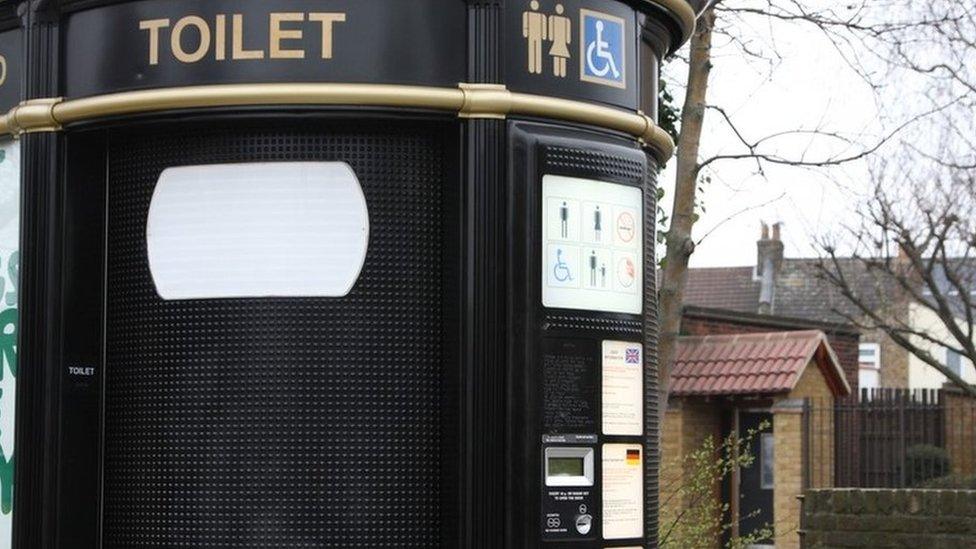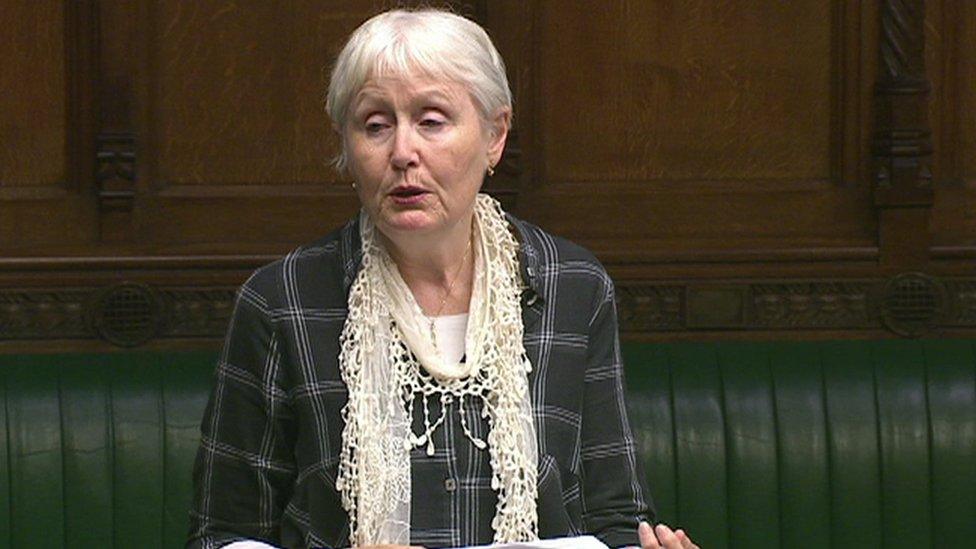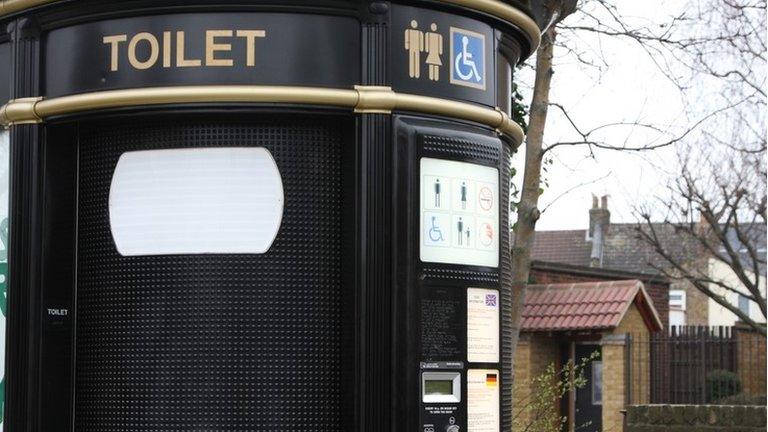Cut business rates for premises offering toilet access, says MP
- Published

Public toilets are increasingly rare sight in many cities, towns and villages
Restaurants, cafes and hotels should be given discounts on their business rates if they allow people "in urgent need" to use their toilets, an MP has said.
Madeleine Moon told the Commons the cutback in toilets in public spaces meant alternative options were needed for those with continence issues.
An estimated 14 million people lived with bladder dysfunction, she said, including many women after childbirth.
Councils having to pay rates on toilets has been blamed for many closing.
The British Toilet Association has estimated that 40% of public conveniences have disappeared in the past decade.
Mrs Moon, the Labour MP for Bridgend, used an adjournment debate in the Commons to address the "taboo" of incontinence and the "social isolation" of those with various bladder conditions.
She told the Commons it was wrong to suggest it was a problem confined to the elderly, pointing out that half of all new mothers every year were estimated to experience some urinary or continence issues after childbirth.
'Very simple'
With 900,000 children and young people also experiencing similar problems, she said, the declining availability of public toilets had become a critical issue in many communities, leaving many people afraid to leave home.
"Isn't it time, at a very simple level, that we look at alternatives?" she said.
"It's not beyond our wit surely in the House to look at issues such as rate relief so that hotels, restaurants, pubs, cafes would provide access to their toilets for those who need urgently to do so," she said.

The MP said there were some very simple things that could be done to help people
She won support from fellow Labour MP Melanie Onn, who cited an initiative in which people with Crohn's disease and ulcerative colitis - whose symptoms include recurring diarrhoea - are given a restroom request card to show outlets, asking for their understanding in allowing them to use their facilities at short notice.
"Business with high footfall could do a lot more to support their customers' needs when it comes to continence issues," she added.
Many pubs and other leisure outlets openly discourage people from using their toilets unless they are paying customers, arguing it costs money to maintain them and facilities can be abused.
Other public buildings are more relaxed, with some churches actively advertising the availability of facilities as a good reason for people to attend social events there.
Replying for the government, Health Minister Steve Brine said the MPs had a "really good point" they should raise with the Department for Communities and Local Government.
Although councils are not required by law to provide toilets, they have discretionary powers to do so and to charge for their upkeep.
Public toilets have traditionally been liable for business rates in the same way as non-domestic premises such as shops and offices. Campaigners have long urged that they should be exempt.
- Published23 June 2015
